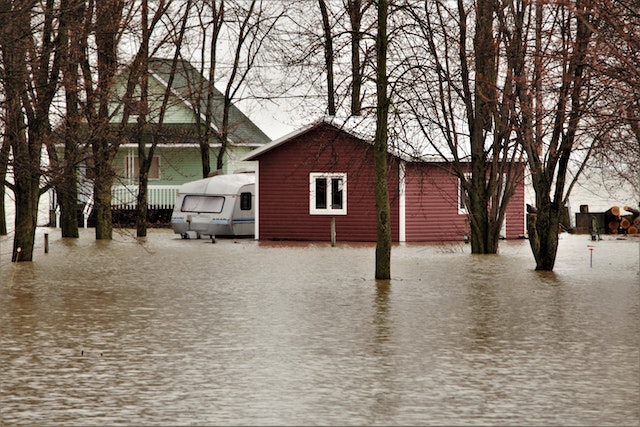
Featured Image from Pexels
Typically, flooding occurs when prolonged rain falls over a given period of heavy rainfall. Also, floods can occur as a result of short intense rain or an overflow of ice or debris jams running into a river or stream. However, in some cases, flooding in your house can be caused by precursors such as burst pipes, an overflowing toilet, or a leaking roof. Floods can lead to significant losses when not well responded to. Keep reading to learn the necessary actions you should take when your house floods!
1. Safely Switch Off the Electricity
While trying to turn off the electricity, always be cautious not to blindly come into contact with the flooded areas of the house. Get access to the shutoff valves (usually located in the basement or outside your home next to the water meter), and turn the handle clockwise until the valve is completely closed.
However, contact the nearest electrician if you cannot safely turn off the electricity. Remember, electricity always travels through, which can be deadly; therefore, it’s best to stay on the side of caution. Never touch the electric switch or circuit breaker with wet hands or while standing in water.
2. Turn Off or Stop the Water
After you’ve successfully shut off the electricity, assess the source of the flood. Locate the main water valve in the house and turn it off. If the water is still gushing from the broken or burst water pipes or an overflowing appliance, close the main water line off.
However, if the water comes from excess rainfall, you might be forced to evacuate the premises. And in such unfortunate instances, make sure the safety of your everyone is supreme as reach out for emergency assistance from the relevant authorities.
3. Take Pictures and Document the Water Damages
Since you already have the situation under control, take your time and assess the nature of the damages caused. Before any clean-up activity, take a picture of the current state of affairs, including any damage to your home and properties.
Documentation of the scene will help you sufficiently provide your insurer with the evidence when you file a claim. In addition, proper documentation will facilitate a smooth process in ensuring you get a just and reasonable compensation.
4. Change into Protective Gear and Remove the Water
Always be in your protective gear before wading into the floodwaters for clean-up. Always wear waterproof boots, pants, goggles, or a mask to shield you from any form of infection. Practice caution since the floodwaters could be from a contaminated source.
Once you’re geared up, empty the house by removing the excess water before furthering any damage to your appliances and possibly mold growth. However, in cases of high-level floodwaters, you may need assistance from a certified company on water and flood damage restoration in Denver.
Upon removing water, increase airflow in the flooded areas of your home to dry out everything soaked or wet. You can also use dehumidifiers and heaters to dry up the moisture from the air and other household items. However, if you are not in possession of such equipment, you can reach professional clean-up service companies and get your house dehumidified.
Alternatively, you can also take out your wet items outside the house (if it’s not raining) for fresh air and sun heat. This way, you shall have reduced the moisture inside the flooded space and appliances.
5. Call Your Insurance Company
When all the dust settles, and the flooding menace is addressed, contact your insurance company provider and start filing a claim. Even though the process might seem tedious, the sooner you begin your claim, the earlier you receive your reimbursement. Getting your insurer should be a top priority before proceeding with any step of reaching out to professional legal services.
Conclusion
Generally, floods are unexpected occurrences that might get you unprepared. Learning the proper steps in managing floods in your home is vital to your safety and your properties. It would help if you were always prepared by acquiring the basic skills to protect your house from floods. Always keep in touch with a professional clean-up company and your insurance provider if your home gets attacked by floods.


